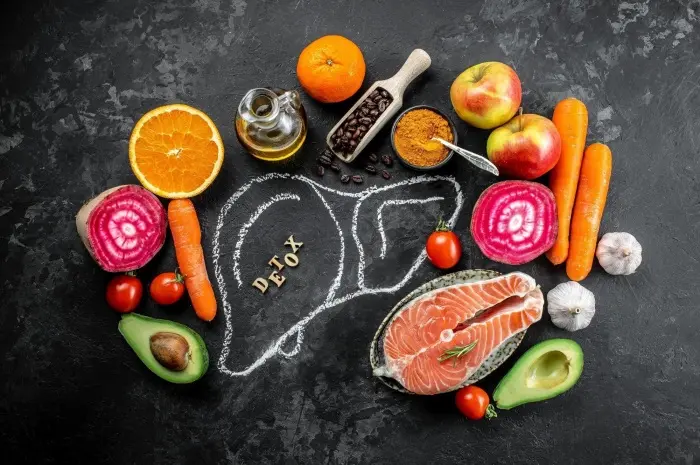Intuitive Eating Is the No-Diet Solution to Good Nutrition
In today’s fast-paced world, the quest for a healthy lifestyle has led many individuals to adopt various diets and restrictive eating patterns.
However, there is a growing movement that encourages a more intuitive approach to eating, one that focuses on honoring our bodies’ natural cues and promoting overall well-being.
This approach is known as “Intuitive Eating,” and it is gaining popularity as a sustainable and empowering alternative to traditional diets.
In this article, we will explore the principles of Intuitive Eating, its benefits, and how it can be the no-diet solution to good nutrition.
What Is Intuitive Eating?
Intuitive Eating is a philosophy developed by dietitians Evelyn Tribole and Elyse Resch in the 1990s. It encourages individuals to cultivate a healthy relationship with food and their bodies by tapping into their internal hunger and fullness cues.
Rather than relying on external rules and restrictions, Intuitive Eating promotes self-awareness and mindfulness in eating habits. This approach is not a diet but a way of reconnecting with the body’s natural wisdom to make food choices that promote well-being.
Understanding the Concept
At the core of Intuitive Eating is the belief that our bodies are equipped with an innate ability to regulate food intake and make nutritious choices. In contrast to traditional diets that impose strict meal plans or calorie counting, Intuitive Eating trusts that individuals can make wise choices when they become attuned to their bodies’ signals. It is about letting go of external dieting rules and embracing internal cues.
The Principles of Intuitive Eating
Intuitive Eating comprises ten principles that guide individuals toward a healthier relationship with food, body, and mind. These principles include:
- Rejecting Diet Culture Diet
culture promotes the idea that thinness equals health and happiness. Intuitive Eating encourages individuals to challenge these harmful beliefs and embrace body diversity and acceptance.
- Honoring Hunger and Fullness
Intuitive Eating encourages tuning into bodily sensations to recognize hunger and fullness cues accurately. It emphasizes eating when hungry and stopping when comfortably full.
- Making Peace with Food
Allowing all foods without guilt or judgment helps break the cycle of restriction and binging. Intuitive Eating respects cravings and includes a wide variety of foods in moderation.
- Discovering Satisfaction
Finding pleasure and satisfaction in eating is crucial for making food choices that nourish both the body and soul.
- Respecting Your Body
Cultivating a positive body image and accepting one’s body size and shape are central to Intuitive Eating.
- Mindful Eating Practices
Engaging all the senses during meals fosters a deeper connection with the eating experience and prevents mindless overeating.
- Becoming Attuned to Your Emotions
Understanding the emotional triggers behind eating habits helps individuals find healthier coping mechanisms.
- Building a Healthy Relationship with Exercise
Intuitive movement focuses on enjoyment and self-care rather than rigid exercise routines.
- The Mental and Emotional Benefits of Intuitive Eating
Intuitive Eating has been linked to reduced stress, improved self-esteem, and a more positive outlook on life.
- Intuitive Eating and Weight Management
Intuitive Eating prioritizes health over weight and advocates for body acceptance at any size.
Rejecting Diet Culture
Diet culture bombards us with messages that our worth is tied to our appearance, leading to harmful dieting practices and body dissatisfaction.
Intuitive Eating asks us to challenge these toxic beliefs and recognize that health and happiness are not determined by our size or shape. Instead, it encourages embracing body diversity and celebrating the uniqueness of every individual.
The Pitfalls of Traditional Diets
Traditional diets often rely on strict rules and restrictions, which can lead to a disordered relationship with food and contribute to the cycle of yo-yo dieting. Such diets are not sustainable in the long term and can have detrimental effects on both physical and mental health.
Embracing Body Positivity and Acceptance
Intuitive Eating emphasizes body positivity, promoting the idea that all bodies deserve respect and acceptance. By rejecting diet culture and embracing body diversity, individuals can focus on nurturing their bodies with compassionate care.
Honoring Hunger and Fullness
Intuitive Eating encourages individuals to tune into their body’s signals of hunger and fullness, rather than adhering to external schedules or portion control guidelines.
Tuning into Your Body’s Signals
Listening to our body’s cues is essential for maintaining a balanced relationship with food. Eating when genuinely hungry and stopping when comfortably full allows for better digestion and prevents overeating.
Breaking Free from Emotional Eating
Intuitive Eating addresses emotional eating by encouraging individuals to find alternative ways to cope with emotions and stress. By addressing emotional needs without turning to food, one can develop a healthier relationship with eating.
Making Peace with Food
One of the core principles of Intuitive Eating is making peace with food by allowing all foods without guilt or judgment.
All Foods Fit Approach
Intuitive Eating recognizes that labeling foods as “good” or “bad” can lead to a harmful cycle of restriction and binging. Instead, all foods are embraced in moderation, allowing for a balanced and sustainable approach to eating.
Overcoming Food Guilt and Restriction
Breaking free from the guilt associated with certain foods is liberating. Intuitive Eating helps individuals move away from the restrict-binge cycle and allows them to enjoy their favorite foods without shame.
Discovering Satisfaction
Intuitive Eating encourages individuals to find pleasure and satisfaction in their eating experiences.
The Joy of Eating
Eating should be an enjoyable experience. By savoring each bite and being present during meals, individuals can cultivate a healthier relationship with food.
Finding Pleasure in Food
By embracing the idea that food is not just about nourishment but also about enjoyment, individuals can find satisfaction in their eating choices without overindulging.
Respecting Your Body
Embracing body diversity and respecting your own body are fundamental aspects of Intuitive Eating.
Embracing Body Diversity
Intuitive Eating celebrates all body types and promotes body acceptance. It recognizes that bodies come in various shapes and sizes, and each body deserves respect and care.
Cultivating Positive Body Image
Intuitive Eating encourages individuals to focus on what their bodies can do rather than how they look. Cultivating a positive body image fosters self-confidence and overall well-being.
Mindful Eating Practices
Practicing mindfulness during meals enhances the eating experience and helps prevent mindless overeating.
Engaging Your Senses
By engaging all the senses while eating, individuals can fully experience the flavors, textures, and aromas of food, leading to a more satisfying meal.
Savoring Each Bite
Slowing down and savoring each bite allows for better digestion and a deeper appreciation of the nourishment food provides.
Becoming Attuned to Your Emotions
Understanding the emotional triggers behind eating habits can lead to healthier coping mechanisms.
Recognizing Emotional Triggers
Intuitive Eating encourages individuals to identify emotional eating triggers, such as stress or boredom, and find non-food-related ways to address these emotions.
Finding Non-Food Coping Mechanisms
By finding alternative ways to cope with emotions, individuals can avoid turning to food for comfort and develop healthier emotional regulation strategies.
Building a Healthy Relationship with Exercise
Intuitive Eating promotes movement as a form of self-care rather than punishment.
Exercise as Self-Care, Not Punishment
Engaging in physical activity should be about nurturing the body and mind, rather than burning off calories or achieving a certain appearance.
Finding Movement that Brings Joy
Discovering physical activities that bring joy and pleasure can make exercise an enjoyable part of daily life, rather than a burdensome obligation.
The Mental and Emotional Benefits of Intuitive Eating
Intuitive Eating has numerous mental and emotional benefits beyond promoting a healthy relationship with food.
Reducing Stress and Anxiety
By releasing the pressure of dieting and embracing self-compassion, Intuitive Eating can reduce stress and anxiety related to food and body image.
Improving Self-Esteem and Confidence
Developing a positive body image and feeling in control of food choices can lead to improved self-esteem and overall confidence.
Intuitive Eating and Weight Management
Intuitive Eating focuses on health and well-being rather than weight loss as the primary goal.
Focusing on Health, Not Numbers
Intuitive Eating prioritizes behaviors that promote overall health, such as balanced nutrition and regular physical activity, rather than a specific number on the scale.
Understanding Weight Set Point Theory
Intuitive Eating acknowledges that the body has a natural weight set point, and weight can fluctuate within a healthy range without external control.
Intuitive Eating for Children and Families
Intuitive Eating can be beneficial for promoting healthy eating habits and body positivity in children and families.
Nurturing a Healthy Eating Environment
Creating a positive atmosphere around food and eating at home can help children develop a healthy relationship with food from an early age.
Instilling Body Positivity from a Young Age
Teaching children to appreciate their bodies and respect body diversity fosters a positive body image as they grow older.
Addressing Common Concerns
Understanding common concerns and misconceptions about Intuitive Eating can help individuals make informed decisions about adopting this approach.
Can Intuitive Eating Lead to Overeating?
Intuitive Eating does not promote overeating; instead, it encourages individuals to listen to their body’s cues and recognize genuine hunger and fullness.
Is Intuitive Eating Suitable for Everyone?
Intuitive Eating can benefit individuals of all ages and backgrounds, promoting a balanced and sustainable approach to eating and well-being.
The Role of Nutrition Education
Integrating nutrition knowledge with Intuitive Eating can enhance overall health and well-being.
Balancing Intuition with Nutritional Knowledge
Combining the principles of Intuitive Eating with basic nutrition education can help individuals make informed and nourishing food choices.
Making Informed Food Choices
Understanding the nutritional value of foods empowers individuals to make choices that support their well-being while still honoring their body’s intuition.
Putting Intuitive Eating into Practice
Transitioning to Intuitive Eating may require time and patience, but small steps can lead to significant change.
Taking Small Steps towards Change
Embracing Intuitive Eating is a gradual process that involves acknowledging and challenging diet culture while developing self-awareness of hunger and fullness cues.
Seeking Support and Accountability
Finding support from professionals or joining a community of like-minded individuals can provide encouragement and accountability on the Intuitive Eating journey.
Conclusion
Intuitive Eating offers a refreshing approach to nutrition and overall well-being, focusing on self-awareness, mindfulness, and body respect. By rejecting diet culture and embracing internal cues, individuals can find freedom from restrictive diets and experience the joy of eating without guilt. Intuitive Eating promotes sustainable habits that nurture both the body and mind, making it a no-diet solution to good nutrition.



